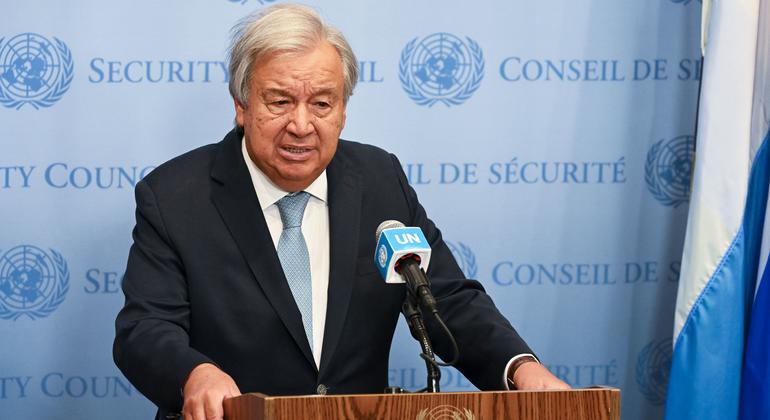The recent Israeli airstrikes in the southern suburbs of Beirut have escalated tensions in the region, leading to the targeted killing of Hassan Nasrallah, the leader of the Hezbollah armed group. Media reports have confirmed his death, sparking a wave of violence between Israeli forces and Hezbollah along the UN-patrolled line of separation in southern Lebanon known as the Blue Line. This latest development comes against the backdrop of the nearly year-long war in Gaza, adding to the already volatile situation in the Middle East.
In response to the escalating violence, the Secretary-General of the United Nations, António Guterres, through his spokesperson Stéphane Dujarric, issued a statement calling for an immediate halt to the cycle of violence. Dujarric emphasized that all parties involved must step back from the brink to prevent an all-out war that would have devastating consequences for the people of Lebanon, Israel, and the wider region. Mr. Guterres urged the parties to recommit to the full implementation of UN Security Council resolution 1701 (2006) and to immediately return to a cessation of hostilities.
Resolution 1701, adopted in August 2006, was aimed at ending the war that erupted in Lebanon that year between Israel and Hezbollah. It called for an end to hostilities, the withdrawal of Israeli forces, and the establishment of a demilitarized zone. The Secretary-General also reiterated his call for an immediate ceasefire in Gaza and the release of all hostages held in the enclave, highlighting the need for peace and stability in the region.
The attacks in Beirut have triggered a new wave of mass displacements, with families forced to flee their homes to seek safety. In response, the UN children’s agency, UNICEF, has expanded its shelter operations to support the affected families. Emergency supplies are being distributed to more than 5,000 people in need, as reported by UNICEF on social media platforms. Additionally, the UN refugee agency, UNHCR, has noted a growing number of people heading to Lebanon’s border with Syria, including women, children, and elderly individuals who are exhausted after hours of travel without food and water.
The Israeli airstrikes in Lebanon have displaced thousands of people, including Palestine refugees living in the country. Cross-border incidents have forced over 200,000 individuals to flee their homes since October 2023, according to data from the International Organization for Migration (IOM). Teams from the UN Relief and Works Agency for Palestine Refugees in the Near East (UNRWA) are responding to the crisis, providing assistance and support to the displaced populations in Lebanon.
UNRWA has opened seven emergency shelters across the country, hosting 1,600 people, including Lebanese citizens and Palestinian and Syrian refugees. Many of the displaced individuals are traumatized by the ongoing bombardment, uncertainty, and fears, with some experiencing trauma from repeated cycles of conflict over the decades. Commissioner-General Philippe Lazzarini emphasized the importance of protecting civilians and ensuring that civilian infrastructure is not targeted to prevent further suffering and devastation in the region.
The situation in the Middle East remains precarious, with continued violence and displacement affecting innocent civilians. The international community, led by the United Nations, must work together to de-escalate tensions, promote dialogue, and find peaceful solutions to the conflicts plaguing the region. The need for humanitarian assistance and support for those affected by the violence is paramount, as efforts to alleviate their suffering and address their needs must be prioritized to prevent further loss of life and devastation.









